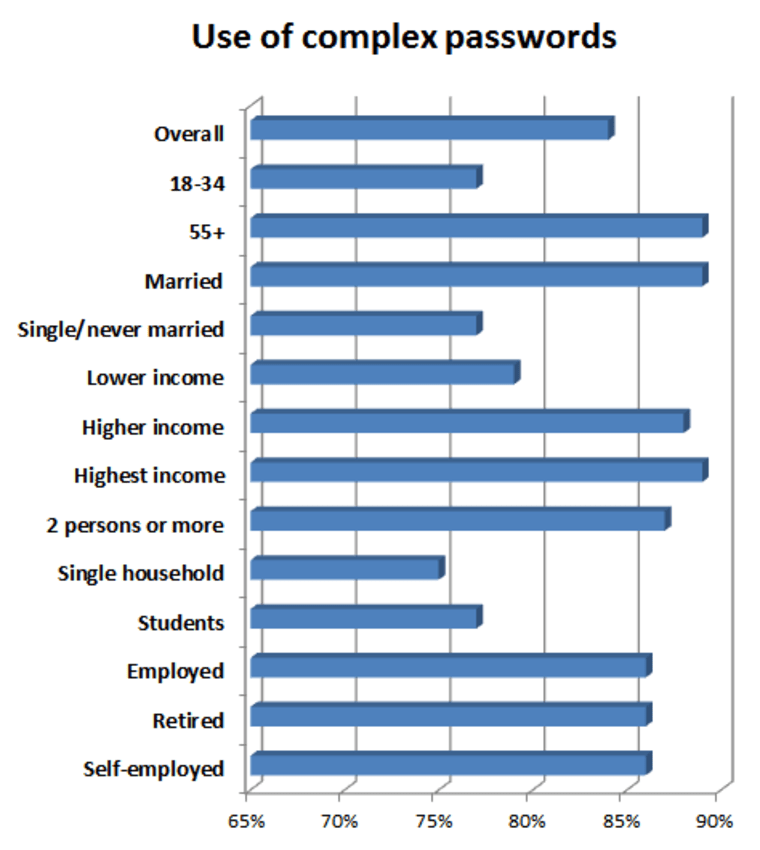A recent poll suggests that while many people are learning to use "strong" passwords online, younger people are less likely than their parents to do so.
The poll was conducted by Harris Interactive on behalf of ESET, a security software company. When respondents were asked whether they used"a combination of numbers, letters and symbols" in their passwords, a surprising 84 percent responded "yes."
That may come as a surprise to many, given the generally low quality of passwords evident whenever a large cache of them is leaked. Thousands of Yahoo! passwords were leaked a few months ago, and a huge number of them were simply "password," "123456," or something similarly insecure.
People have apparently learned their lesson, according to the study, though more stringent requirements when choosing a password may also deserve some credit. But interestingly, the lowest-scoring group wasn't, as some might expect, seniors, but rather those ages 18 to 34. Yes, students and young folks of all stripes appear to be rather more cavalier about their security.
In fact, compared with people 55 and older, younger people were less likely to use a complex password, multiple passwords or have different PINs for different devices and services.
The reasons for this weren't explored by the survey, but people ages 18 to 34 are more likely to be using and logging into dozens of sites rather than just two or three, which could lead to a greater tendency to repeat passwords. Stephen Cobb, ESET's Security Evangelist and author of the post describing the survey results, agreed that there could be some behavior like this that's leading to lackluster security measures.
Younger people do excel in another area, though: using a password manager. Those ages 18 to 34 were much more likely to use an application to store and manage their passwords, or to use a Web browser's built-in capabilities to that effect. Men especially (twice as many as women) stored their passwords in their browsers.
More statistics and analysis can be found at ESET's blog post on the poll.
Devin Coldewey is a contributing writer for NBC News Digital. His personal website is coldewey.cc.
